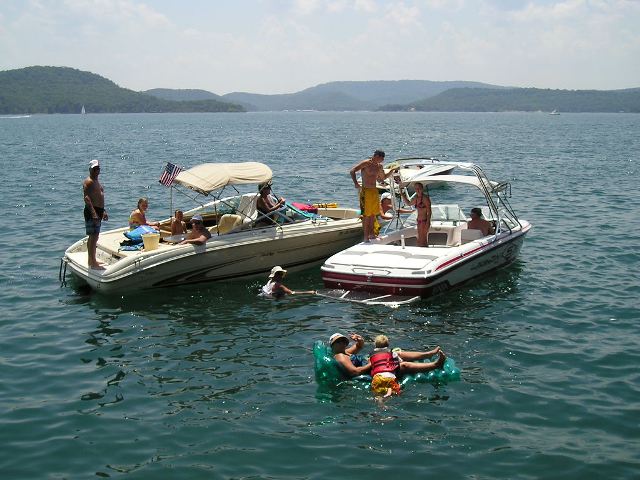
With over 28,220 surface acres of clear, beautiful water to explore, Beaver Lake is available for boaters, skiers, scuba diving, and fishermen to enjoy their favorite pursuit. Fuel, supplies, and services are available at 7 marinas operated by private concessionaires. Twenty-two launch ramps provide access to those wishing to enjoy a day on the lake. Ramps are available at the following Beaver Lake parks: Dam Site Lake, Indian Creek, Lost Bridge North, Lost Bridge South, Prairie Creek, Rocky Branch, Horseshoe Bend, Hickory Creek, Starkey and War Eagle. Users of the ramp must pay a daily fee of $ 5 per vehicle, or purchase a $40 annual pass. Paid campers are not required to pay the daily use fee. Annual passes may be purchased in person at the park attendant booth, or at the Beaver Project Office, 2260 N. 2nd Street, Rogers, AR 72756.
Approximately 6,000 people have drowned annually in the U.S. Since most drowning victims had no intention of being in the water, and since most people drown within 10-30 feet of safety, it is important that you and your family learn to swim. 124 persons have drowned to date in Beaver Lake. While boating in Arkansas, you should be familiar with Arkansas Boating Laws.
Boat Safety Tips:
- Always wear an approved Coast Guard life jacket
- Do not drink alcohol and operate any type of vessel
- Learn to swim
It is also important to follow some simple but critical guidelines if you are going to be near the water.
- Take a safe boating course (Arkansas Boating Education Courses)
- Check the weather forecast
- Put on your life jacket and leave your alcohol behind
- File a float plan with friend or marina
- Check your boat for all required safety equipment
- Check your electrical system and fuel system for gas fumes
- Follow manufacturer’s suggested procedures before starting up
- Carry a map, navigation chart, and know your waters
- Follow the navigation rules of the road, buoys and other aids to navigation
- Be a safe boater; always keep a safe lookout.
- Carry a cell phone and charger, and have a VH marine band radio on board.
Cold water survival is extremely important during thewinter months. Many unsuspecting drowning victims actually die from cold exposure or hypothermia, a condition in which the body loses heat faster than it can be produced. Violent shivering develops which may give way to confusion and a loss of body movement.
To avoid hypothermia:
- Dress warmly with wool clothing
- Wear raingear and stay dry
- Seek a warm environment at the first sign (mild shivering) of hypothermia
If you fall in the water:
- Don’t discard clothing
- While wearing your life jacket, draw your knees and arms together into the HELP (Heat Escape Lessening Posture) position
